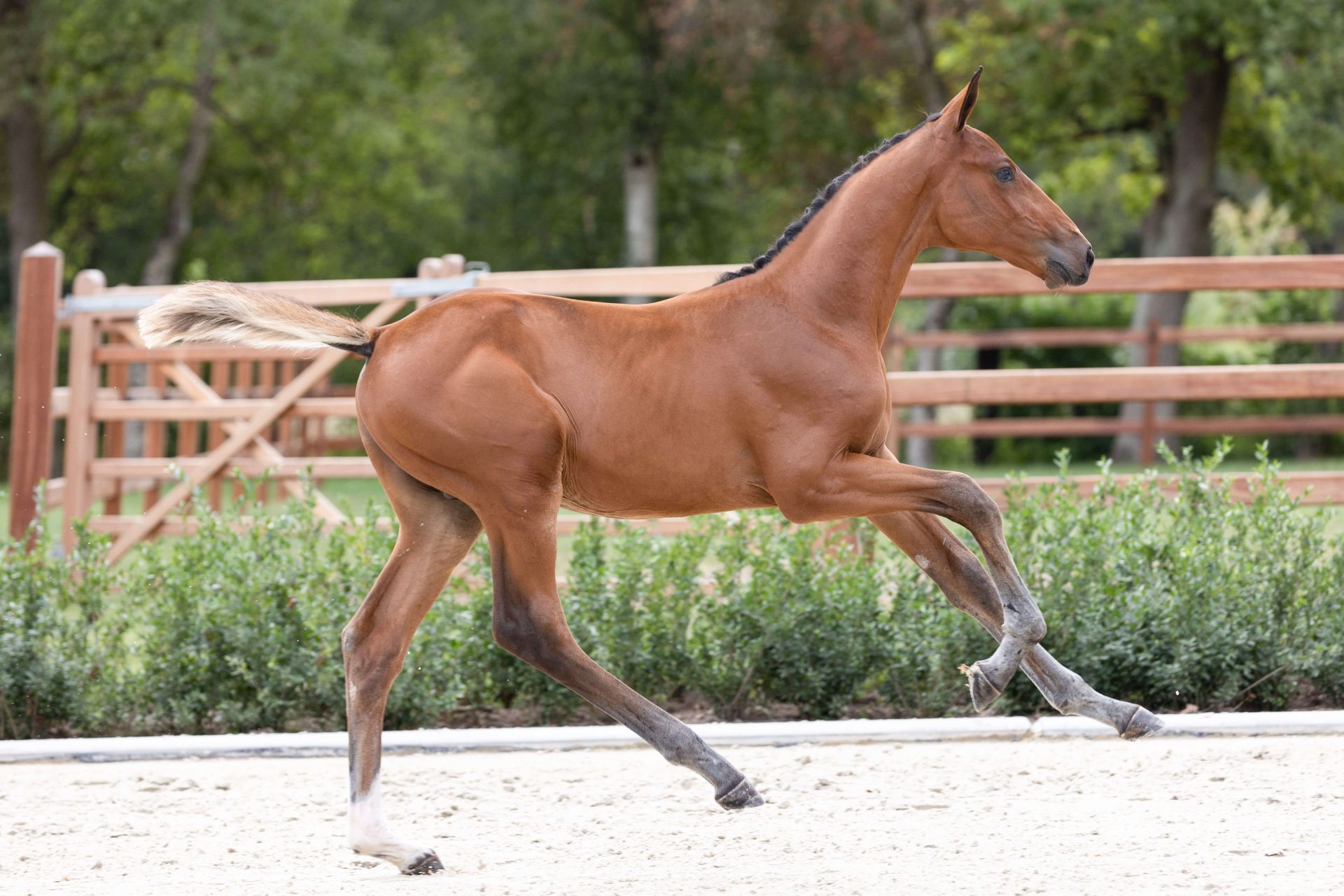The breeders of international performing horses are more and more being put in the spotlight. In Belgium they have the Belgian Breeder Bonus since last year, during the Jumping World Breeding Championship for Young Horses in Lanaken the breeders of the podium horses receive a bonus and in France there is also a bonus for the breeders of horses that stand out. It is no secret that the money from selling a home bred horse stands in big contrast to what the horses actually jump together during their careers. Then the question quickly arises whether a European endowment for breeders, coming from the international federation, would offer a solution to keep the quality of European breeding high. "The breeder is somone who handles with passion, but sometimes misses the necessary motivation from our industry," it sounds. "Yet breeding is the basis of success." Suppose we were to transfer 1% of all international and national win sums to breeders, is that feasible? And if so, who will end up paying for it in these times when everything appears "too expensive"?
In 2022, over €138,000,000 worth of winnings were handed out at international show jumping competitions (CSI1*, CSI2*, CSI3*, CSI4* and CSI5*). In total, there were 670 competitions, guaranteeing about 25,000 classes. Suppose you can find a system that guarantees payouts to breeders of top three show jumpers, then the total pot to distribute annually would be about 1,380,000 euros, or an average of 55.2 euros to distribute per class. Of course, a distribution key will have to be applied here.
Breeding is passion, but begs for recognition
That the breeder is often the financial "dupe" of a transfer is no public secret. The horse lover is usually only involved in the first phase of a horse's career. Still, the breeder deserves recognition. "The first step has already been taken with the fact that changing horse names has become a more difficult task. Also the mention of the breeder in results and on various news sites are a sign of recognition." But is this enough? As soon as a horse (or foal) is sold by auction or an important transfer is made public, it quickly sounds, "And once again the breeder doens't cash."
Money is and will never be the main goal of many a breeder. "Passion, building your own dam line, etc. it what really matters." However, it is the (horse) industry's responsibility to support the breeder. After all, it is the foundation of the sport's success. "Without good horses, no good results."
Some federations and organizations already live by that principle and have taken (small) action. But immediately the question arises whether it is up to individuals to take the initiative or the official institutions.
Recognition is the key word in this discussion. "There must be the realization that the cost of a horse often exceeds the income. So sharing in a 1% bonus will not change much (financially) in most cases. However, it will give recognition and a lot of motivation goes with that."
Breeding is a national business with an international character
It's all not that simple. As in most international organizations, there is a distinction between the powers of the international federation (FEI) and the national federations. "Breeding is by definition a national matter. Therefore, it would be logical that the bonus should always be given at a national level."
Some federations already apply this. However, it is the FEI's responsibility to promote the sport internationally, so also every actor in the sport, in this case; the breeder.
Second issue is national taxes. These vary from country to country. For example, a French breeder of a winning horse will, in the case of a bonus, be left with more than a Belgian one. "That is correct, but there must be a general awareness that the system cannot change that. This is a national policy conducted outside the horse industry."
Who is going to pay for this?
The recurring key question, of course, is ... "Sounds lovely, but who will pay for this?" Equestrian sport is evolving more and more into an expensive business where the incomes coming from the sport are inversely proportional to the necessary costs. Making the rider or owner pay for the breeder's bonus would shrink the market and ultimately have a negative effect on the sport and industry.
Withholding prize money will unfortunately not be received positively either. After all - outside of Grand Prix and Longines Ranking classes - win fees are often underwhelming compared to entry fees.
Competition organizations are burdened by higher energy, personnel and registration costs. Moreover, these organizations must increasingly rely on "experience" and "solidarity," something that comes with unrecoverable costs.
Thus, the question arises where over 1.3 million euros of funds will be acquired annually...
Just as there is a solidarity fund set up by the FEI, one could opt to set up a breeding incentive fund. Together with the main actors such as studbooks, national federations and the WBFSH, the funds could be acquired. The only problem is that studbooks have become competitors of each other and national federations also compete to be the best. After all the better your image in the sport the more subsidies, sponsor income, etc. can be acquired. However, we must be positive and make this work.
Suppose each federation contributes a part, as well as the WBFSH contributes and each studbook contribute a part to the fund per registration. The FEI - which generates an (annual) positive result of about CHF 2.5 million (over 2.5 million Euros) - can contribute the residual sums. After all, in this way it shows a positive sign for the continuity of our sport.
It is and remains a difficult exercise to make, but without a doubt one that will force itself to be converted into reality in the near future!

